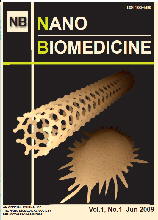Synopsis
Pancreatic ductal adenocarcinoma (PDAC) is a significant cause of cancer-related deaths. A previous study showed that combination therapy with high-dose radiotherapy and an anti-CTLA-4 anti-body (C4) enhanced distant anti-tumor effects, referred to as the abscopal effect. Hyperthermia (HT) enhances the anti-tumor effects in combination with radiotherapy (RT) or chemotherapy. However, the local and abscopal effects of RT with HT combined with C4 therapy for PDAC re-main unclear. Here, we investigated whether combination therapy with HT, RT, and C4 is an effective therapeutic strategy for PDAC. Murine PDAC cells were inoculated into both legs of C57BL/6 mice, and the mice were treated only one leg with HT and/or RT. C4 was administered intraperito-neally every 3 days for a total of three doses. According to in vitro experiments, the radiosensitizing effect of HT was approximately 23%. In vivo experiments, no radiosensitizing or abscopal effect of HT to 10 Gy of RT was obtained, and the same results were observed when C4 was used in combi-nation. However, the dose escalation to 14 Gy with HT and C4 induced the abscopal effect. These results suggest that the radiosensitizing effect of HT plays a role not only at local sites, but also at abscopal sites via C4. Further studies using more focal and high-temperature HT (eg; magnetic nanomaterial-based HT) may unveil enhanced therapeutic efficacy and safety.
Key words:radiation therapy, hyperthermia, immune checkpoint inhibitor, abscopal effect, pancreatic cancer
Full text PDF
DOI: 10.11344/nano.17.1
Okauuchi A, Katsuk S, Minami K, Takenaka W, Takekawa S, Tamari K, Ibuki Y, Hamada Y, Koizumi M, Ogawa K, Takahashi Y. Triple combination therapy using hyperthermia, radiation, and immune checkpoint inhibitor enhances local and abscopal effects in murine pancreatic cancer model. Nano Biomed 2025; 17(1): 1-8.
